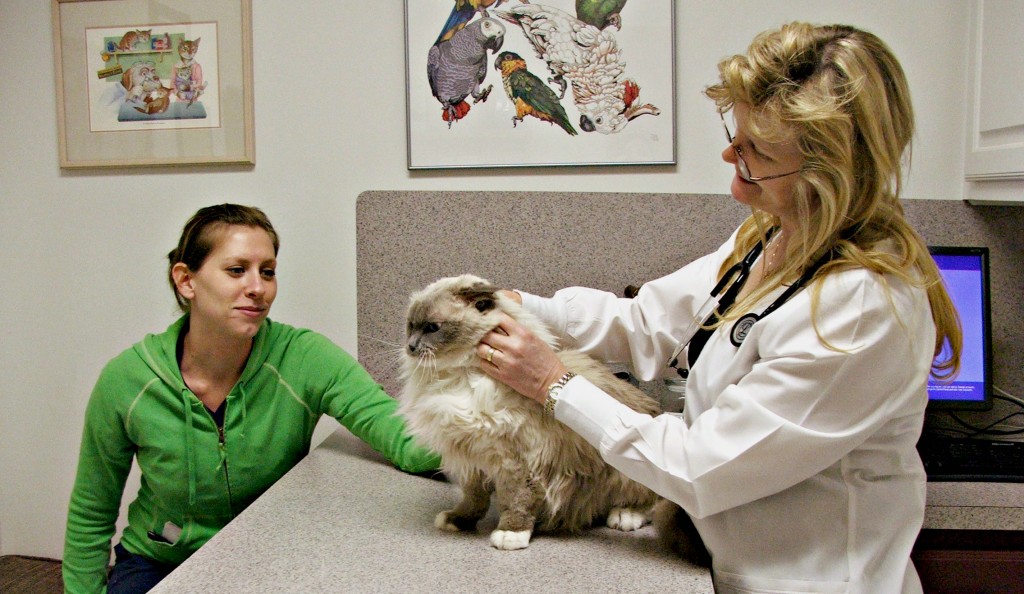 Cats are a unique species in many ways. One of the more harmful of these is their tendency to develop injection site reactions. Therefore, when given certain types of injections, cats may react at the site of the injection. Adjuvanted vaccines are the type of injection with the most risk for your cat is an adjuvanted vaccine. We will discuss Adjuvanted and Non-Adjuvanted Vaccines.
Cats are a unique species in many ways. One of the more harmful of these is their tendency to develop injection site reactions. Therefore, when given certain types of injections, cats may react at the site of the injection. Adjuvanted vaccines are the type of injection with the most risk for your cat is an adjuvanted vaccine. We will discuss Adjuvanted and Non-Adjuvanted Vaccines.
This type of vaccine contains an adjuvant or irritating chemical along with the virus or bacteria. These adjuvanted vaccines are essential for some types of vaccines to boost the immune response and ensure protection. They are quite safe and effective in humans, dogs and other species. However, in cats, they have been shown to cause a malignant and often fatal cancer known as vaccine site sarcoma (VSS).
Adjuvanted and Non-Adjuvanted Vaccines
Vaccine Site Sarcoma and Adjuvanted Vaccines
Vaccine site sarcomas are cancerous tumors are that occur at vaccination sites in cats caused by vaccines that contain adjuvant. Approximately one to two out of every 10,000 vaccinated cats develop this condition. If you notice swelling at the vaccination site with any of the following, contact All Pets immediately:
- grows larger after 1 month
- bigger than 2 centimeters (0.79 inches)
- persists for more than three months
Diagnosis of vaccine site sarcoma is made via a surgical biopsy (tissue sample). Treatment usually requires wide surgical excision (removal), often followed by radiation or chemical therapy. We recommend keeping your cat current on vaccines. This is because the risks of contracting a serious infectious disease are greater than the risks of developing a tumor.
If you are concerned about the risks, contact our veterinarians here at All Pets Veterinary Medical Center. We can discuss the benefits of getting your pet vaccinated.
What Causes These Sarcomas?
Stimulating an immune response (forming antibodies) against the virus allows vaccines help protect cats from dangerous infectious viruses. Generally, vaccines contain very tiny amounts of the target virus, or protein particles derived from the virus. With the injection of this material, the body’s immune system responds through a series of steps. These steps include making antibodies and modifying other cells that will recognize the target organism later. These changes constitute an immune response. Later, when the vaccinated individual encounters the “real” organism, the body recognizes it and reacts to provides protection from getting sick.
Although live viruses can create an immune response, they can also have the potential to infect the animal. Preventing this requires the modification or killing of viruses in vaccines to make the vaccines safer. Often times, killed viruses cannot stimulate an immune response as effectively as modified or live viruses. Adding a substance called adjuvant to these vaccines helps the animal mount a more effected immune response over a longer period of time.
The cause of vaccine site sarcomas are unknown. However, research suggests that the adjuvant in combination with local inflammation, may be a contributing factor. The tumors have not had a connection to a single brand of vaccines. However, they are more commonly associated with feline leukemia virus (FeLV) and rabies vaccines.
Non-Adjuvanted Vaccines
The risk of vaccine site sarcoma is almost completely eliminated by the use of non-adjuvanted vaccines. These vaccines are specially formulated to eliminate the need for an adjuvant. Therefore, they allow for safe inoculations with little to no risk of tumor formation. Also, they are just as effective as their adjuvanted counterparts.
Here at All Pets Veterinary Medical Center, we are proud to use only non-adjuvanted vaccines in all our patients. We also avoid the use of any other drugs known to cause injection site reactions. We strongly believe in providing only the best quality of care for our patients.
This is just the basics of Adjuvanted and Non-Adjuvanted Vaccines. If you have any questions or concerns about vaccinating your cat, contact us with the link below to speak with our knowledgeable staff and doctors.















